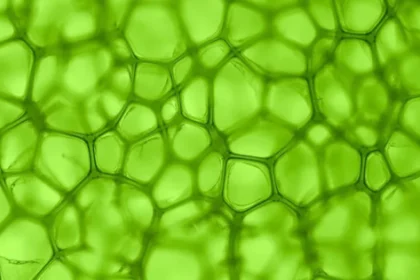In the realm of herbal remedies, certain plants are renowned for their immune-stimulating properties. While these herbs offer potential benefits for many individuals, it is crucial to exercise caution if you have an autoimmune condition. This article will explore the immune-stimulating properties of Spirulina, Aphanizomenon flos-aqua, Chlorella, Echinacea, and Alfalfa, shedding light on their effects and explaining why individuals with autoimmune conditions should approach them with care.
- Spirulina: Spirulina, a blue-green microalgae, is rich in nutrients and has gained popularity as a dietary supplement. It contains phycocyanin, which possesses immune-modulating properties. While Spirulina offers several health benefits, its immune-stimulating effects may not be suitable for individuals with autoimmune conditions. Overstimulation of the immune system can potentially exacerbate the symptoms and lead to immune system dysregulation.
- Aphanizomenon flos-aqua: Aphanizomenon flos-aqua, commonly known as AFA blue-green algae, is another supplement touted for its immune-boosting potential. It contains various bioactive compounds that can influence the immune system. However, individuals with autoimmune conditions need to exercise caution when considering Aphanizomenon flos-aqua. Its immune-stimulating effects may trigger an overactive immune response, potentially worsening autoimmune symptoms.
- Chlorella: Chlorella, a single-celled freshwater green algae, is recognized for its rich nutrient profile and potential immune-enhancing properties. It contains various immune-modulating substances such as polysaccharides and antioxidants. Nevertheless, individuals with autoimmune conditions should approach Chlorella cautiously due to its immune-stimulating effects. Uncontrolled immune activation can contribute to autoimmune flare-ups and complications.
- Echinacea: Echinacea, a popular herb commonly used to support immune health, possesses potent immunostimulatory properties. It is known to activate various immune cells and enhance immune responses. However, for individuals with autoimmune conditions, the immune-stimulating effects of Echinacea may potentially exacerbate the autoimmune response. It is advisable to consult with a healthcare professional before incorporating Echinacea into the regimen.
- Alfalfa: Alfalfa, a legume rich in vitamins and minerals, is widely used in herbal medicine. It has been attributed with immune-stimulating properties, thanks to its bioactive compounds. However, individuals with autoimmune conditions should exercise caution with Alfalfa due to its potential to stimulate the immune system. Uncontrolled immune activation can contribute to autoimmune symptoms and complications.
Considerations for Autoimmune Conditions:
While Spirulina, Aphanizomenon flos-aqua, Chlorella, Echinacea, and Alfalfa offer potential immune-stimulating benefits for many individuals, those with autoimmune conditions should be mindful of the potential risks associated with their immune-boosting effects. Autoimmune conditions involve an overactive immune response, and stimulating the immune system further may lead to worsening symptoms or immune dysregulation.
It is crucial for individuals with autoimmune conditions to consult with a knowledgeable healthcare professional before incorporating these herbs into their routine. They can provide personalized guidance based on the specific condition and overall health status, helping determine the appropriateness and dosage of these herbs.
Spirulina, Aphanizomenon flos-aqua, Chlorella, Echinacea, and Alfalfa are widely recognized for their immune-stimulating properties. However, individuals with autoimmune conditions should exercise caution when considering the use of these herbs. While they offer potential benefits for immune health in the general population, their immune-stimulating effects may not be suitable for individuals with autoimmune conditions.
Autoimmune conditions involve a complex interplay of immune system dysregulation, and stimulating the immune system further can potentially lead to increased inflammation, exacerbation of symptoms, and a heightened autoimmune response. It is essential to prioritize the stability and balance of the immune system in such cases.
Visit Radiate21.com to learn more about how adaptogens work to help heal the gut lining, which helps to tame autoimmune conditons.
Autoimmune Conditions Need Immunomodulating Herbs
It’s important to note that not all immune ‘boosting’ herbs ‘boost’ the immune system. There are also another class of herbs which are known as immunomodulating herbs. What does that mean? It means that they are a more intelligent class of plants and act to either boost or decrease the response of the immune system. Immunomodulating herbs sharpen the sniper sense of your immune system to kill things that actually need to be killed as opposed to hyper-reacting to everything.
There are two incredible herbs from the Amazon rainforest that have plenty of research behind them as having strong immunomodulating properties. This means that they instruct the immune system to respond more wisely to threats so that your immune system doesn’t waste energy on things that are not a real threat.
Enter The Amazon Rainforest..
Sangre de Drago (Dragon’s Blood) and Una de Gato (Cat’s Claw) are two herbal remedies derived from plants native to the Amazon rainforest. These botanicals have gained attention for their immunomodulatory properties, which allow them to regulate the immune system’s response based on its specific needs. This article explores the research surrounding the immunomodulation effects of Sangre de Drago and Una de Gato and their potential to balance the immune system’s activity.
Immunomodulation and Its Importance:
Immunomodulation refers to the ability of certain substances to modify the immune system’s response. An efficiently functioning immune system maintains a delicate balance between its activation and inhibition. In cases of immune deficiency, the system may need a boost, while in autoimmune disorders, downregulating an overactive immune response is crucial. Sangre de Drago and Una de Gato exhibit immunomodulatory properties that can aid in achieving this balance.
Sangre de Drago: Sangre de Drago is derived from the sap of several tree species, primarily Croton lechleri. It contains various bioactive compounds, including proanthocyanidins, alkaloids, and phenols. Research has demonstrated that Sangre de Drago exhibits both immune-stimulating and immune-suppressing effects, depending on the specific circumstances.
Studies have shown that Sangre de Drago can enhance the activity of certain immune cells, such as macrophages and natural killer cells, thus strengthening the immune response against pathogens. On the other hand, it has also been found to possess anti-inflammatory properties, inhibiting the production of pro-inflammatory cytokines. This dual action suggests that Sangre de Drago can turn up the immune response when needed, while simultaneously reducing excessive inflammation and preventing immune system overactivation.
Una de Gato (Cat’s Claw in English):
Una de Gato, also known as Cat’s Claw, has been traditionally used in indigenous medicine for its immunomodulatory properties. It contains various bioactive compounds, including alkaloids and flavonoids. Research has demonstrated that Una de Gato can regulate the immune response by both stimulating and suppressing immune activity.
Studies have shown that Una de Gato can enhance the activity of immune cells, such as T-cells and natural killer cells, thus strengthening the immune response against pathogens. Furthermore, it has been found to modulate the production of cytokines, promoting a balanced immune response. By inhibiting the overproduction of pro-inflammatory cytokines and increasing the production of anti-inflammatory cytokines, Una de Gato helps maintain immune homeostasis and reduce inflammation.
The immunomodulation research surrounding Sangre de Drago and Una de Gato highlights their ability to regulate the immune system’s response based on its specific needs. These herbal remedies can both boost the immune response when necessary and prevent excessive inflammation or immune overactivation. However, it is essential to note that further research is needed to fully understand the mechanisms of action and determine optimal dosages for specific conditions.
If you are considering using Sangre de Grado or Una de Gato for their immunomodulatory properties, I recommend utilizing Radiate 21. This formula contains both sangre de drago and una de gato as they pair well together to instruct the immune system to respond more wisely.
Sangre De Drago For Leaky Gut & Autoimmune
Another really great benefit of the Radiate 21 formula is that Sangre de drago (dragon’s blood in English) is a great healer and sealer of the gut lining. Leaky gut is what leads to autoimmune conditions proliferating within the body. The Radiate 21 formula works on the front-end of the problem to help to seal the leaky gut as well as on the backend of the problem to support the immune response from immunomodulation. There are no other formula’s that support leaky gut, the autoimmunity response and cleanup of the lymphatic system like Radiate 21.
Click here to visit Radiate21.com to learn more about the formula today.





